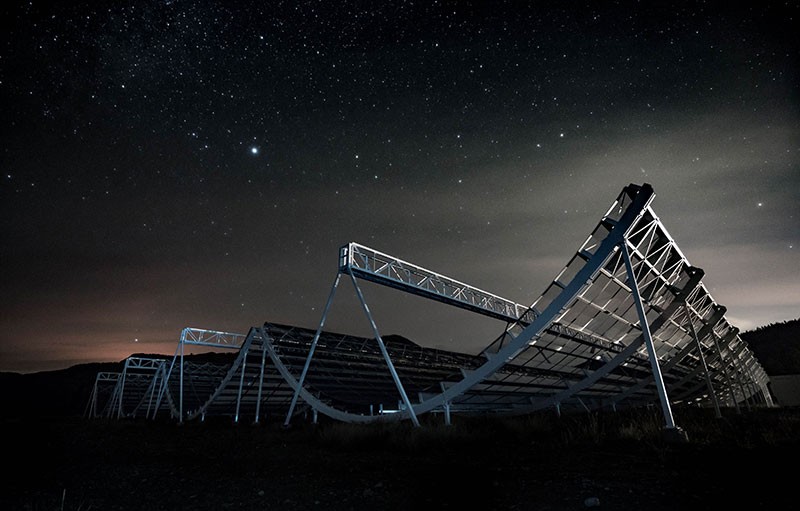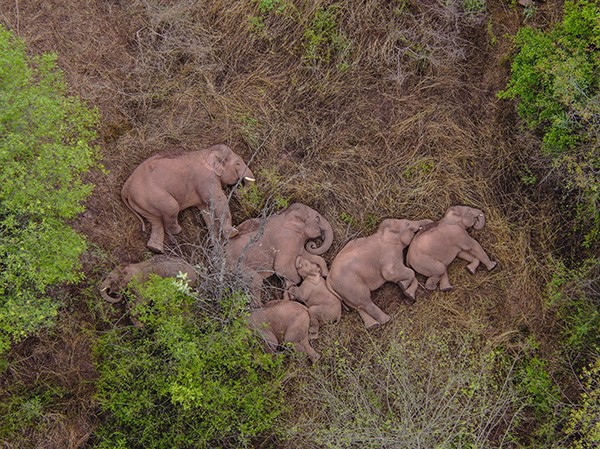Hello Nature readers, would you like to get this Briefing in your inbox free every day? Sign up here
A bumper crop of fast radio bursts (FRBs) shows that the mysterious signals come in two distinct types. The Canadian Hydrogen Intensity Mapping Experiment (CHIME) radio telescope has detected 535 FRBs — quadrupling the known tally of these powerful cosmic flashes, which flare for just milliseconds. Most of them are one-offs, but a minority repeat periodically and last at least ten times longer than average. The findings suggest that FRBs might originate from at least two astrophysical phenomena — bringing us a step closer to solving one of astronomy’s biggest puzzles.
Nature | 5 min read
Cases of dengue fever plummeted by a “staggering” 77% after researchers released modified mosquitoes that are resistant to the virus. These mosquitoes carry dengue-blocking Wolbachia bacteria, which they spread through local mosquito populations. Wolbachia-carrying mosquitoes were released over a six-month period in randomly designated parts of Yogyakarta in Indonesia, starting in 2017. Early results last August were so encouraging that researchers have since released Wolbachia-carrying mosquitoes over all of central Yogyakarta and plan to expand the project.
The Atlantic | 6 min read
Read more: Meet public-health researcher Adi Utarini, who is leading this completely new approach to controlling dengue (Nature’s 10 | 4 min read, from December)
Reference: New England Journal of Medicine paper
Features & opinion
Cash-flow challenges and team tensions are just two of the issues a fledgling business can face. Learn from them and move on, seasoned entrepreneurs tell Nature’s Working Scientist podcast. “Things never go exactly as you expect, even when things are going well,” says Barbara Domayne-Hayman, entrepreneur in residence at the Francis Crick Institute in London. “Resilience is the single most important thing that you need to have.”
Nature Careers Podcast | 19 min listen
With landers from NASA and China recently dropping onto the surface of Mars, scientists are pondering whether we should treat the planet like a resource to exploit or a place to protect. Critics of unfettered human activity point to the lessons from the history of exploration and colonization on Earth. And they note that space exploration already presents ethical quandaries, such as the proliferation of space junk and placing telescopes on sacred land. “There’s a whole system built around this idea of space exploration being ethical and pro-human, but it’s also one that doesn’t necessarily hear voices from non-Western perspectives,” says Mi’kmaq astronomer Hilding Neilson. “It has to be about being part of Mars, as opposed to making Mars part of us.”
The New Yorker | 14 min read
Image of the week
A herd of wild elephants cuddles as they rest near a village in Xiyang township, China. For reasons unknown, the 15 animals have spent months travelling hundreds of kilometres across the country from their home on a nature reserve. The elephants are beloved social-media stars that authorities are carefully protecting, despite their eating millions of dollars worth of crops, damaging buildings and startling people in their homes. (BBC | 3 min read) (Xinhua/Shutterstock)


